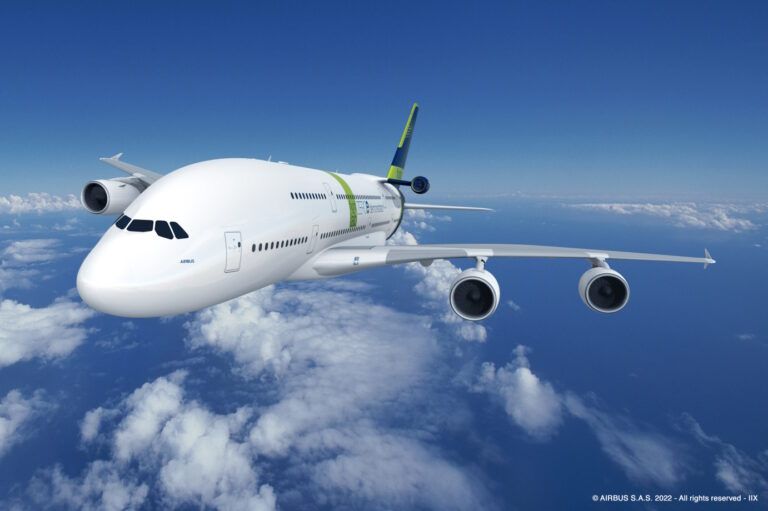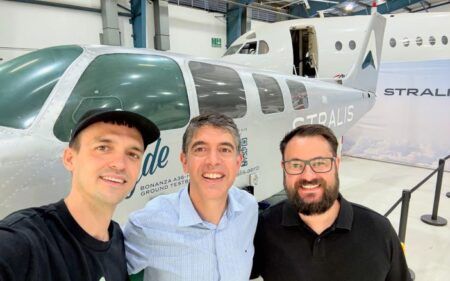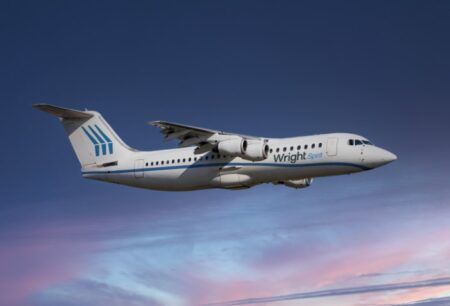Liebherr-Aerospace is developing an air supply system for the fuel cell that will be used by Airbus in its hydrogen-powered demonstrator aircraft.
The European plane-maker’s ZEROe program aims to develop the world’s first hydrogen-powered commercial aircraft by 2035. ZEROe includes several concepts that use hydrogen combustion and one which uses hydrogen fuel cells – a high-wing 100-seat regional airliner which features six eight-bladed propellers attached to engine pods.
The engine pods for this concept contain hydrogen fuel cells that will produce electricity from electrochemical reactions to power electric motors. Airbus has been conducting feasibility studies and laboratory tests to develop a fully working megawatt-class fuel-cell engine and demonstrator which it aims to test in flight by 2026.
In a hydrogen fuel cell, air is used as the source of oxygen for the electrochemical reaction that produces electricity. The air is drawn into the fuel cell and directed towards the cathode, where it reacts with hydrogen ions (protons) that have been separated from hydrogen molecules at the anode. This reaction produces water vapor and releases electrons, which travel through an external circuit to provide an electrical current.
Liebherr-Aerospace, which is based in Toulouse, France has designed and delivered a functional air supply system demonstrator with a power of 1MW which is presently installed in Airbus’ testing facilities.
The next phase of the project will see Liebherr-Aerospace design and qualify an air supply demonstrator suitable for flight, which is able to withstand the integration constraints in an operational environment close to the propulsion system.
This air supply system will be used in the 2026 flight test campaign to demonstrate the performance of a fuel cell propulsion system under operational conditions.
Dr. Nathalie Duquesne, Managing Director at Liebherr-Aerospace Toulouse SAS said,
“We are very pleased to support Airbus in this ambitious project. As Liebherr’s center of excellence for air management systems, we are continuously investing in R&D to offer innovative technological breakthrough solutions to our customers.
“Our systems and components are on board the Airbus aircraft family and we are proud to say that we will also participate in this emblematic program that will contribute to transform aviation towards a sustainable future.”





